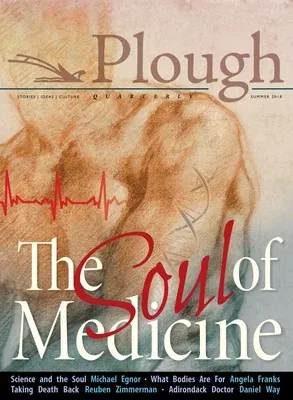We need a vision of how medicine might serve the good of the whole
human person: the body's health, but also the health of that "piece of
divinity in us."
Medicine, so long as you don't need it, is a tangential part of
life, just one more profession among others. Until that is, a loved one
suffers an accident or falls sick. Then, suddenly, medicine is quite
literally, a matter of life or death. Medicine is also big business.
Doctors have been reclassified as "service providers," and patients are
"clients." Such commercialism breeds false incentives and inequalities,
even in nations.
We need a vision of how medicine might serve the good of the whole
human person: the body's health, but also the health of that "piece of
divinity in us." We need love and reverence for humans as they are, not
humans as technology may someday engineer them to be. Jesus, the healer
from Nazareth, showed what it means to love the imperfect, the frail,
the average. The glory of the medical profession is that it is dedicated
to these works of mercy. In today's money-driven healthcare industry,
such tasks are often poorly rewarded. Yet they're at the heart of
medicine's original mission.
Also in this issue: original poetry by Suzanne Harlan Heyd; reviews
of new books by Barbara Ehrenreich, Ryan T. Anderson, Beth Macy, and
David R. Montgomery and Anne Biklé; and art by Tim Lowly, Michelangelo,
Julian Peters, Wanjin Gim, Scott Goldsmith, Jan Mostaert, Suleiman
Mansour, Cécile Massie, Peter Doig, Erin Hanson, and Jason Landsel.
Plough Quarterly features stories, ideas, and culture for people
eager to put their faith into action. Each issue brings you in-depth
articles, interviews, poetry, book reviews, and art to help you put
Jesus' message into practice and find common cause with others.

